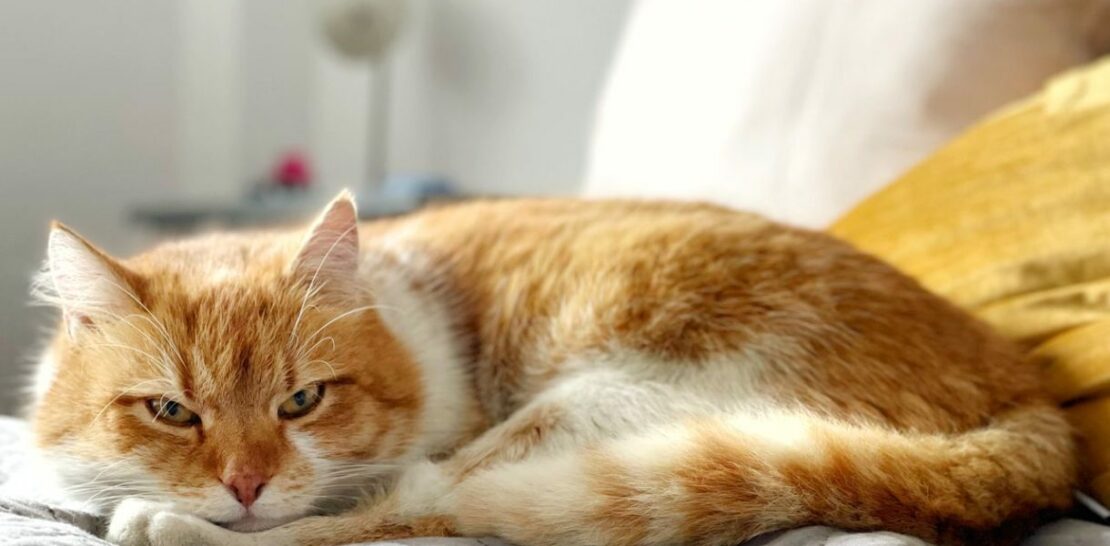As a cat owner, you may have been faced with the perplexing and frustrating situation of finding your beloved pet has urinated on your bed.
This behavior not only leads to the hassle of cleaning and removing lingering odors but may also leave you wondering why your furry companion would commit such a seemingly defiant act.
In this comprehensive article, we will explore the various underlying reasons behind this behavior, as well as provide insight into potential solutions and preventative measures.
Decoding the Feline Mind: Understanding the Psychological Factors at Play
While it is easy to assume that your cat is simply acting out of spite or defiance, it is important to understand that cats, like any other living beings, have their own complex emotions and thought processes.
Feline Stress and Anxiety
One potential reason for a cat to urinate on a bed is due to feelings of stress or anxiety. Cats are known to be highly sensitive creatures and may be reacting to changes in their environment, new family members, or other stress-inducing factors.
- Changes in the household, such as moving to a new home or the introduction of a new pet or family member, may cause your cat to feel threatened or insecure.
- Certain events, like loud noises (fireworks or construction work) or an altered daily routine, can also contribute to increased stress levels in your cat.
- Separation anxiety may be another factor, especially if your cat has a strong bond with you and has developed a habit of seeking comfort in your bed.
Marking Their Territory
Cats are territorial animals, and they may be driven to mark their territory through urination. This can be particularly true in homes with multiple cats, as they may feel the need to assert dominance or establish a sense of security by marking their preferred sleeping areas.
- Introducing new furniture or rearranging the existing layout of your home may disrupt your cat’s sense of territory, leading them to re-establish it by marking your bed.
- Conflict among cats in a multi-cat household may lead to increased marking behavior as a way of asserting dominance or establishing boundaries.
The Physical Health of Your Feline Friend: Medical Issues That May Lead to Inappropriate Urination
It is essential to consider that the behavior of urinating on the bed may not be solely driven by psychological factors. In some cases, underlying medical issues could be the root cause of this habit.
Urinary Tract Infections and Other Urinary Issues
One of the most common medical reasons for a cat to urinate on the bed is the presence of a urinary tract infection (UTI) or other related urinary issues, such as bladder stones or cystitis. These conditions can cause pain and discomfort, leading your cat to associate the litter box with these negative sensations and seek out alternative places to urinate – often softer and more comfortable surfaces like your bed.
Age-Related Decline in Cognitive Function and Mobility
As your cat ages, it may experience a decline in cognitive function, leading to confusion and disorientation. This cognitive decline may result in them forgetting where the litter box is located or becoming too disoriented to locate it, resulting in accidents on your bed. Additionally, older cats may suffer from arthritis or other mobility issues that make it difficult for them to access the litter box, causing them to seek out more easily accessible places to urinate.
Examining Your Cat’s Environment: Home and Litter Box Factors
It’s crucial to evaluate your cat’s living environment and litter box setup to determine if these factors could be contributing to their inappropriate urination habits.
The Litter Box: Cleanliness, Location, and Accessibility
- One of the most common reasons for a cat to urinate outside of its litter box is that the box is not clean enough. Cats are fastidious creatures and may refuse to use a dirty litter box, leading them to seek out other areas to relieve themselves.
- The placement of the litter box in your home may also be a factor, as some cats prefer to have their litter box in a quiet, private area away from high-traffic areas and noisy appliances.
- Ensure that the litter box is easily accessible, especially for older cats or those with mobility issues. This may meanproviding a litter box with lower sides or placing it in a more convenient location within your home.
The Type of Litter and Litter Box
It is important to consider the type of litter and litter box you are using, as some cats can be particular about their preferences. Experimenting with different types of litter, such as clumping, non-clumping, or even unscented varieties, may help determine if your cat has a preference that is not being met. Similarly, some cats may prefer an open litter box, while others may feel more secure in a covered one. These preferences may change over time, so it is crucial to be attentive to your cat’s changing needs and adapt accordingly.
Addressing the Issue: Strategies for Solving and Preventing Inappropriate Urination
Once you have identified the potential underlying reasons for your cat’s behavior, it is time to implement strategies to help solve and prevent future incidents of inappropriate urination.
Managing Stress and Anxiety
If you suspect that your cat is experiencing stress or anxiety, there are several steps you can take to help alleviate these feelings and promote a more positive environment for your feline friend.
- Create a safe and secure space for your cat, such as a quiet room or a designated “cat-only” area, where they can retreat to and feel protected.
- Provide environmental enrichment, such as toys, scratching posts, and window perches, to keep your cat engaged and occupied throughout the day.
- Consider utilizing synthetic pheromone products, such as Feliway diffusers or sprays, which can help promote feelings of calm and security for your cat.
- Consult with your veterinarian about potential medications or supplements that may help reduce your cat’s stress or anxiety levels.
Addressing Medical Issues
If you suspect that your cat’s inappropriate urination may be due to an underlying medical issue, it is crucial to consult with your veterinarian to determine the appropriate course of action. Early detection and treatment of urinary tract infections, bladder stones, or other medical issues can not only help resolve the inappropriate urination but also prevent further complications and discomfort for your cat.
Modifying the Litter Box Setup
Ensuring that your cat’s litter box setup meets their needs and preferences can go a long way in preventing inappropriate urination behaviors. This may involve:
- Maintaining a consistent cleaning schedule, scooping waste daily and completely replacing the litter at least once a week.
- Experimenting with different types of litter and litter boxes until you find the combination that your cat prefers.
- Providing multiple litter boxes in different locations throughout your home, especially in multi-cat households, to ensure that your cat always has access to a clean and convenient place to urinate.
In conclusion, understanding the various potential reasons behind your cat’s inappropriate urination behavior is crucial to addressing and resolving the issue. By considering the psychological, medical, and environmental factors at play, you can implement effective strategies to help your feline friend feel more comfortable and secure in their environment, ultimately leading to a happier and healthier life for both you and your cat.




